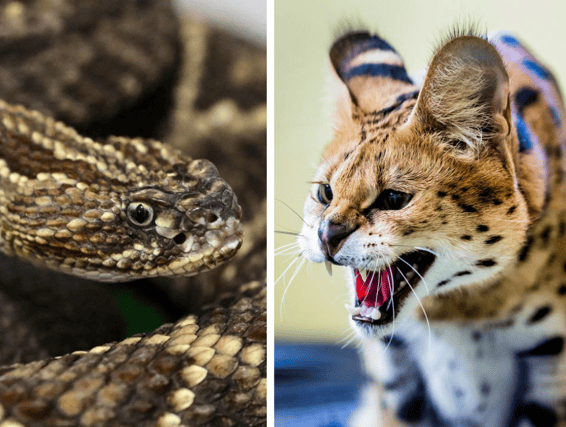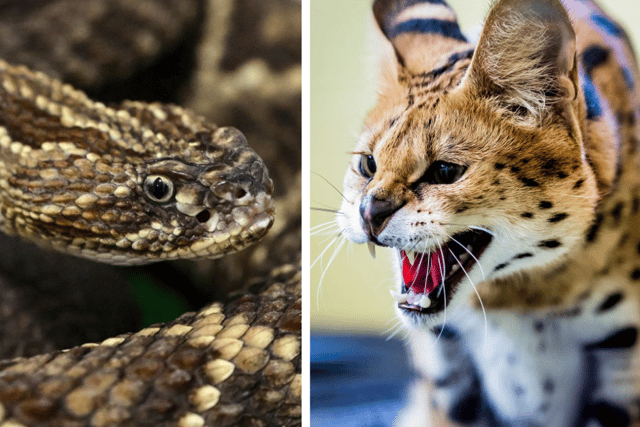London borough with more venomous snakes than any other


Research by a wildlife charity has revealed that one London borough has 20 venomous snakes registered as pets.
The data from Born Free shows Croydon is the capital's centre for the reptiles.
Advertisement
Hide AdAdvertisement
Hide AdThe charity says keeping wild animals as pets can be hazardous for owners and is harmful for the animals. Nearly 3,000 pets are recognised as "dangerous" under a law it is campaigning to change.
According to information received by the charity, just three other boroughs have dangerous wild animals registered with the local authority.
Richmond upon Thames is home to two Savannah cats, while Kensington and Chelsea has one.
Redbridge has one pet serval, another type of wild cat.
All are registered with a permit under the Dangerous Wild Animals Act 1976.
Advertisement
Hide AdAdvertisement
Hide Ad

Dr Mark Jones, Born Free’s head of policy said, “It is unbelievable that, in this day and age, so many dangerous animals, including big cats, large primates, crocodiles and venomous snakes, continue to be legally kept in people’s homes in the UK. Increasing demand for and trade in all kinds of wild animals as exotic pets puts owners and the wider public at risk of injury or disease. It also results in serious animal suffering, and the demand increases the pressure on many wild populations which are often already under threat.
"The UK likes to claim to be at the forefront of efforts to protect nature and improve the welfare of animals, yet our legislation governing the keeping of and trade in exotic pets is woefully outdated.
"The Dangerous Wild Animals Act should be overhauled as a matter of urgency, in order to phase out the private keeping of those species that clearly don’t belong in people’s homes.”
Among the wild animals kept legally in people’s homes around the country are bush vipers in Bedfordshire, cheetahs in Cheshire, caiman in Kent and lynx in Lincolnshire.
Advertisement
Hide AdAdvertisement
Hide AdChris Lewis, Born Free’s captivity research officer, said: “The Dangerous Wild Animals Act was intended to make the keeping of such animals categorised as 'dangerous' a wholly exceptional circumstance. However, Born Free’s ongoing research paints a very different picture. Many members of the public will rightly be shocked to learn of so many animals being kept by private keepers.
"Yet, at its core, the act is based upon the assumption that it is possible to keep dangerous wild animals in a way that minimises or eliminates risk to the public and in a manner that meets an animal’s welfare needs. This has resulted in legislation being reactionary, struggling to keep pace with ever-changing scientific evidence and becoming increasingly out of date. The regulations pertaining to the keeping and trading of wild animals kept as pets are in urgent need of review.”
The charity says wild animals retain many of their natural behaviours, and that being kept in stressful, unnatural, confined environments, can potentially make them more dangerous. In addition, the charity raises concerns about the transmission of zoonotic diseases from animals to humans.
Born Free is calling on the UK government to review the Dangerous Wild Animals Act.
Comment Guidelines
National World encourages reader discussion on our stories. User feedback, insights and back-and-forth exchanges add a rich layer of context to reporting. Please review our Community Guidelines before commenting.
